Teaching Sustainability: The First Summer School of the TAP-TS Project in Larnaca, Cyprus
The first Summer School of the Teacher Academy Project – Teaching Sustainability (TAP-TS) took place Larnaca, Cyprus. TAP-TS is one of the very first Erasmus+ Teacher Academy Projects in the European Union, aiming to raise awareness around sustainability issues and to develop and try out materials and pedagogical approaches to teach sustainability at different education levels.

The first Summer School of TAP-TS “Teachers’ Professional Learning for Sustainability” took place from the 26th to the 30th of June and was hosted by the project-partners, Cyprus Pedagogical Institute, in Larnaca, Cyprus. Together with TAP-TS project partners from Germany, Portugal, Ireland, Sweden, Belgium, Cyprus and Austria the participants spent a week together diving deeper into the topic of sustainability with all its complexity and variety. Sixty participants had a chance to test and evaluate teaching and learning materials, and try out different pedagogical approaches, discuss and exchange pedagogical ideas, and reflect on the rich experiences they have been part of.
The enriching and inspiring exchange between international experts on the topic of Education for Sustainable Development created a true community of educators, teachers and teacher students who hopefully will be implementing the experiences into their own practice.
The University College of Teacher Education in Vienna was represented by teacher educators Florian Danhel and Elena Revyakina, primary school teachers Olena Luchynska and Mariia Kostyk (guest professor of the National University and primary school teacher in Lviv/Ukraine), and student teachers Charlotte Abendroth, Sabrina Laschet, Christoph Gombkötö and Tobias Winkler.
The Programme of the TAP-TS Summer School in Cyprus offered a variety of rich experiences: workshops on a Sustainable Europe, Environmental Education, Digitality and Sustainability, Climate Crisis Resilience, Green Citizenship, Sustainable Development Goals, a field trip to the Cape Greco Environmental Education Centre with a field work on Marine Sustainability, all followed by planting a reflective tree for our sustainable future.
The following paragraphs depict a selection of workshops, interactive hands-on exercises and teaching materials presented and evaluated during the Summer School in Cyprus.
Day 1. The Summer School started with an opening ceremony and creative group work that was a beginning of the reflective journey.
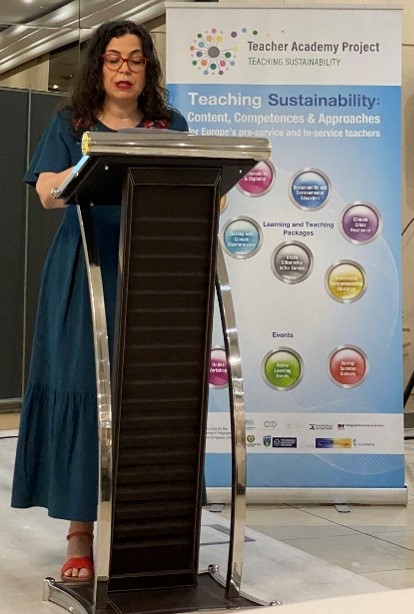
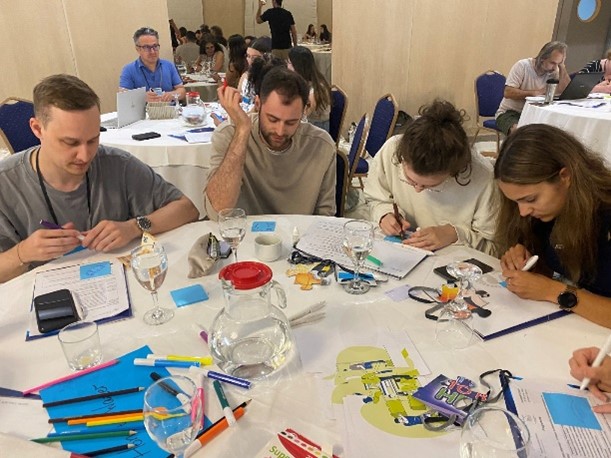
The workshop about a Sustainable Europe had a particular focus on understanding the concept of sustainability from different perspectives. The workshop was led by TU Dresden University of Technology. The participants had a chance to reflect on their understanding of a number of concepts such as ‘a sustainability crisis’, ‘sustainability’, and learn different perspectives that appear in discourse around sustainability.
In the workshop about Sustainability and Environmental Education (Polytechnical Institute of Santarém) the participants created a simulated Lego ecosystem, reflected on the impact of human activities on the shaping of the ecosystemtook and took part in activities to help pupils think and learn more about biodiversity and ways of preventing possible damage.
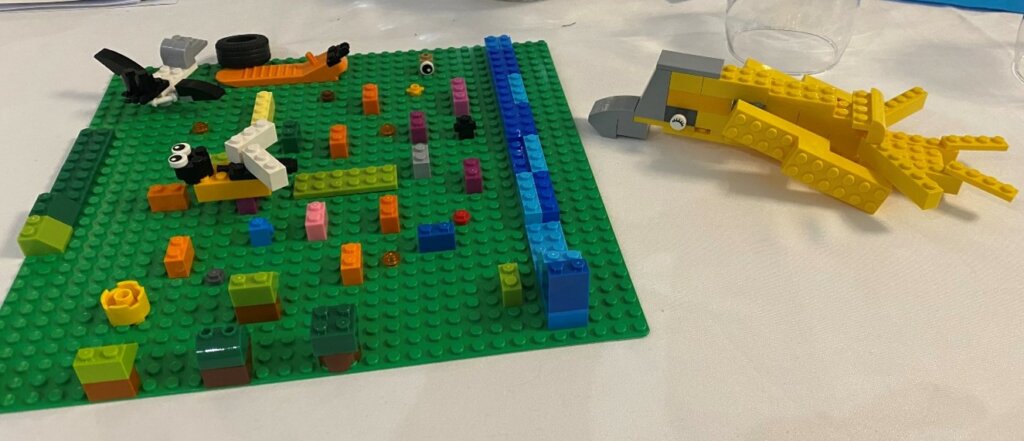
Day 2. The day started with a workshop about Sustainability and Digitality led by University College of Teacher Education, Vienna. The participants had a hands-on experience disassembling smartphones and exploring what’s inside of them: Where do the raw materials come from and how is this all related to a sustainable future? The workshop finished with a creative task of using the phone details which are not used any longer. The work was supported by PH Vienna student teachers Charlotte Abendroth, Sabrina Laschet, Christoph Gombkötö and Tobias Winkler who were the guides of each workshop station.
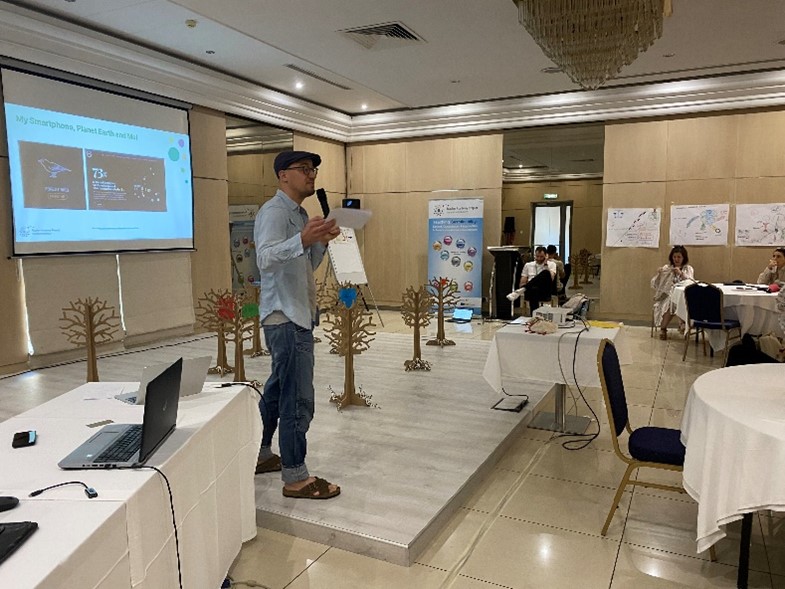
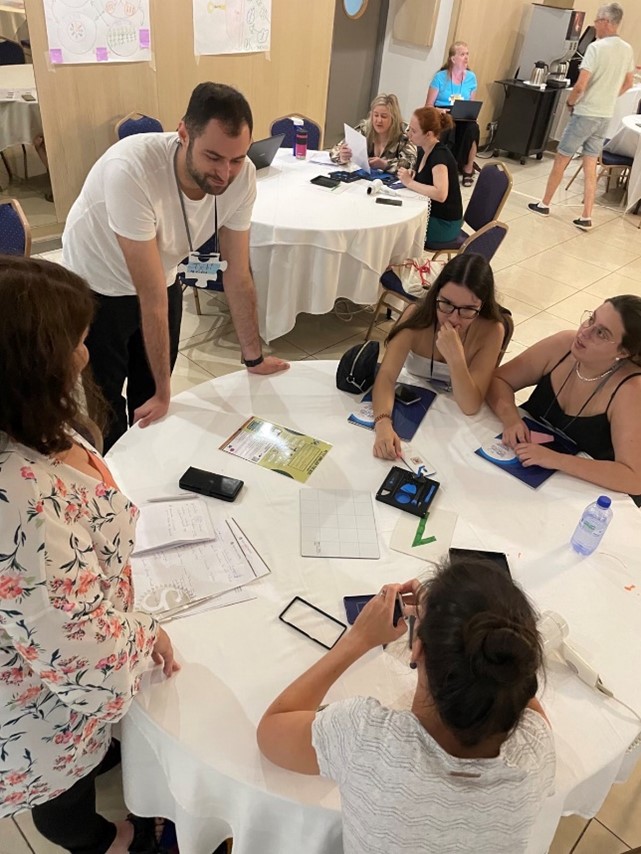
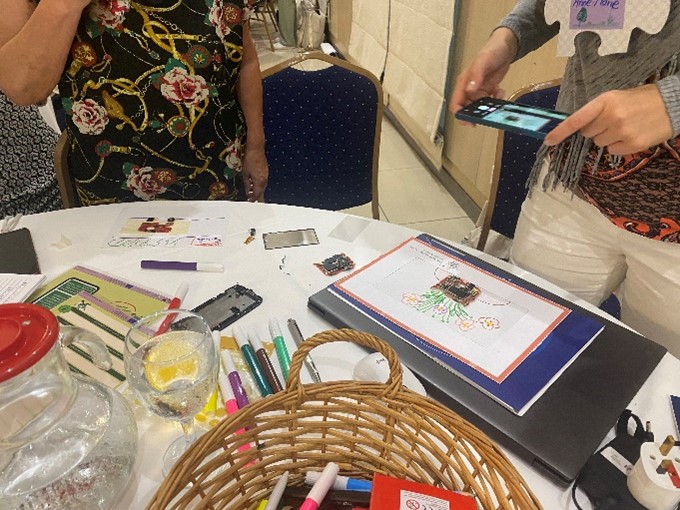
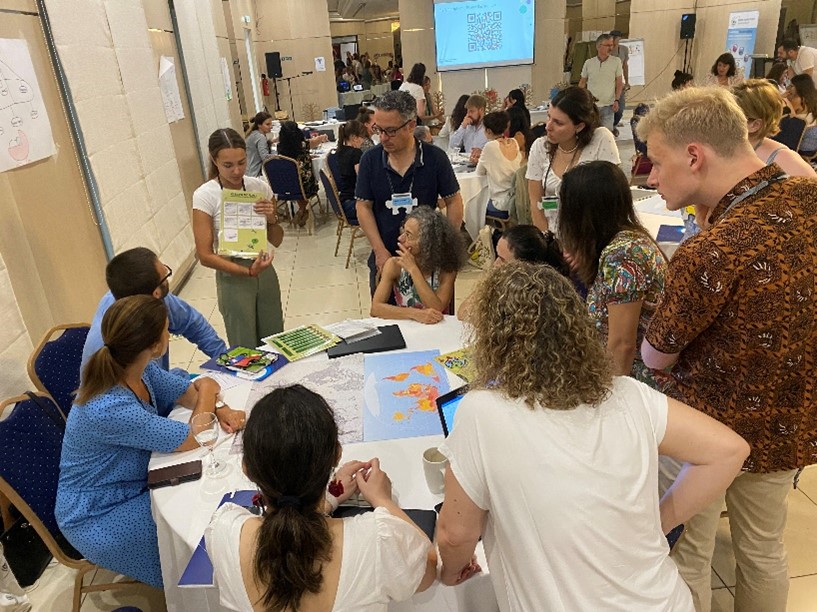
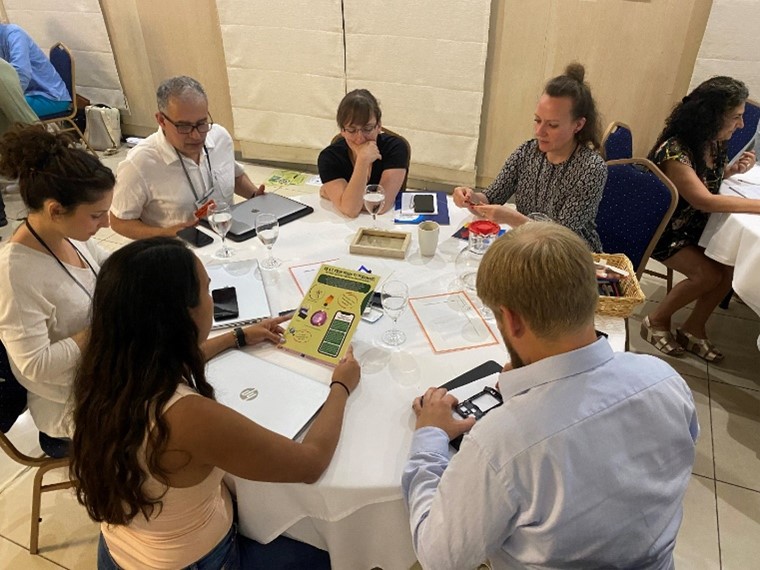
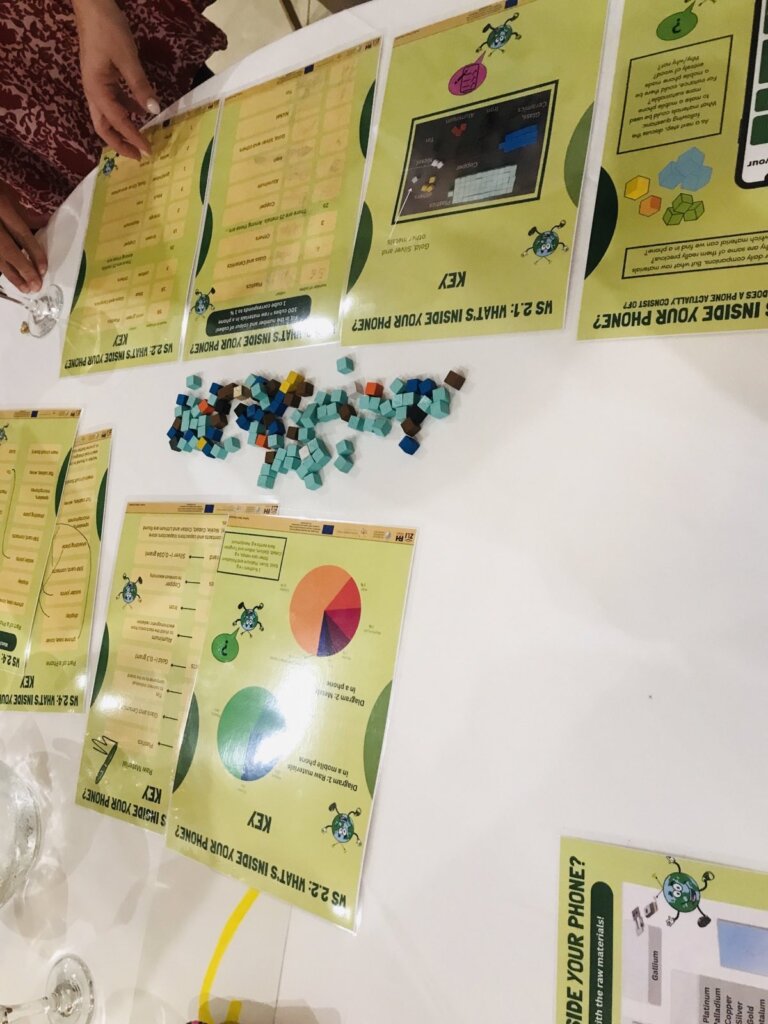
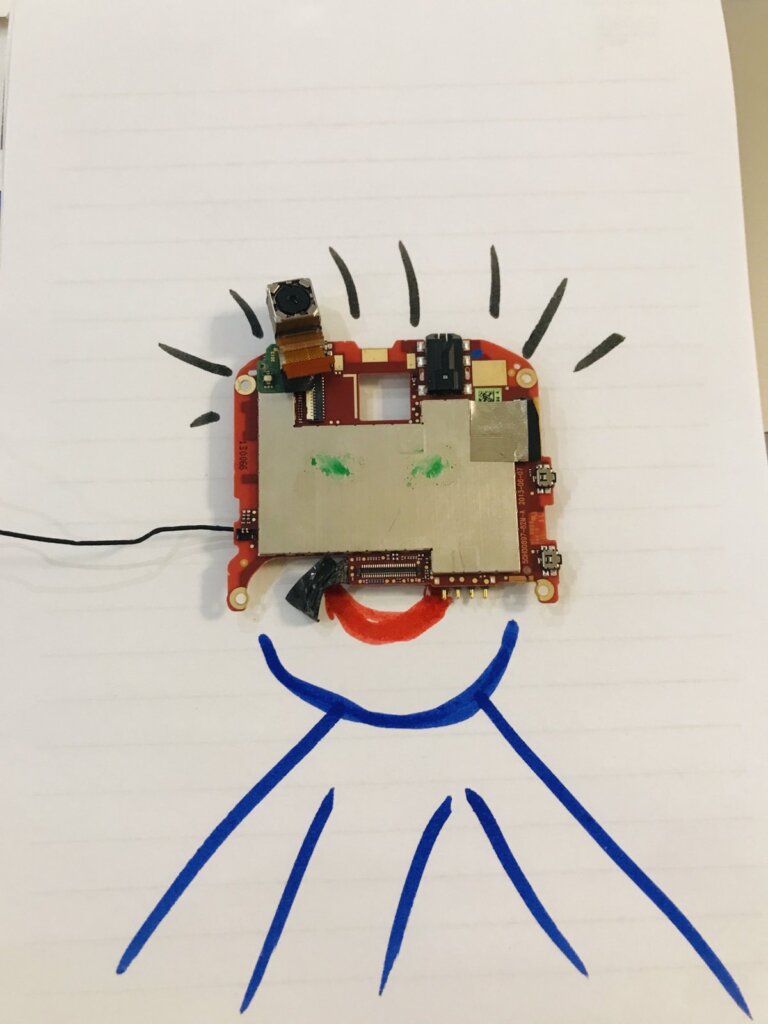
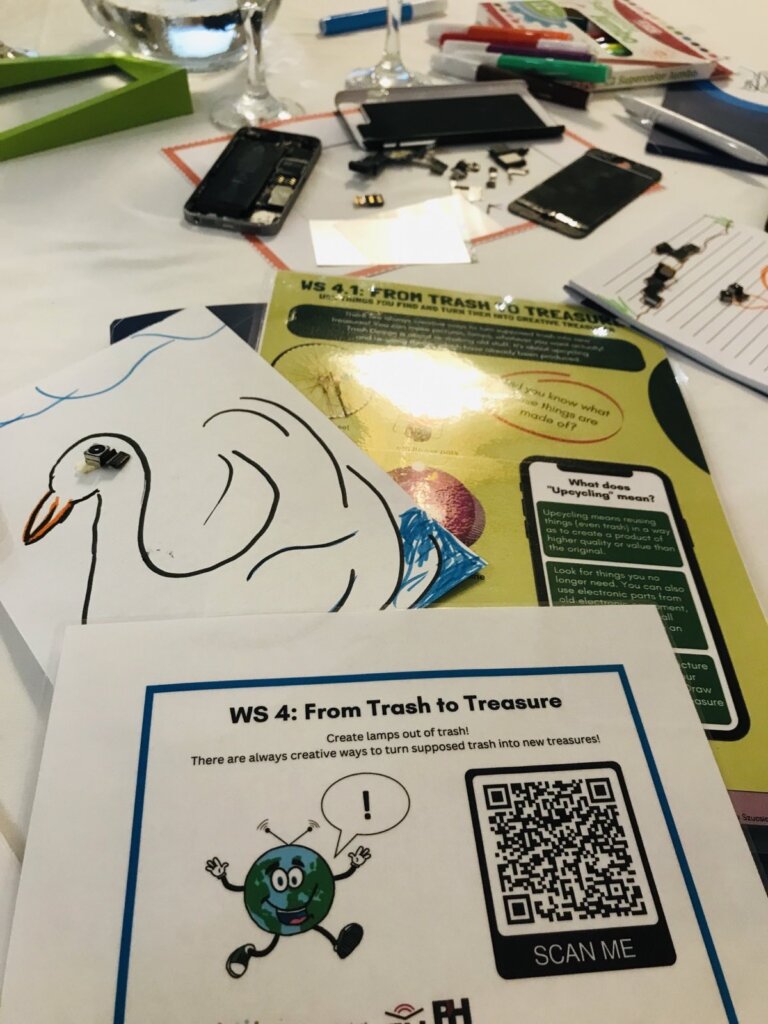
Two workshops on Climate Crisis Resilience (University College Dublin/Ireland & Eummena/Belgium), engaged the participants in the methods of gamification (simplified learning content taught through a playful approach) and serious digital games. The participants were taken to an island where they needed to make a decision about the future construction on an island supported by AI, Meeting rooms, and discussions.
Day 3. The participants were invited to the Cape Greco Environmental Education Centre where they learnt about Marine Sustainability and took part in an outdoor activity. Themes such as microplastic, footprints on the marine biodiversity were made visible and felt using injury-based learning approaches. Snorkeling was part of the rich experience followed by a friendly and warm evening on the coast.
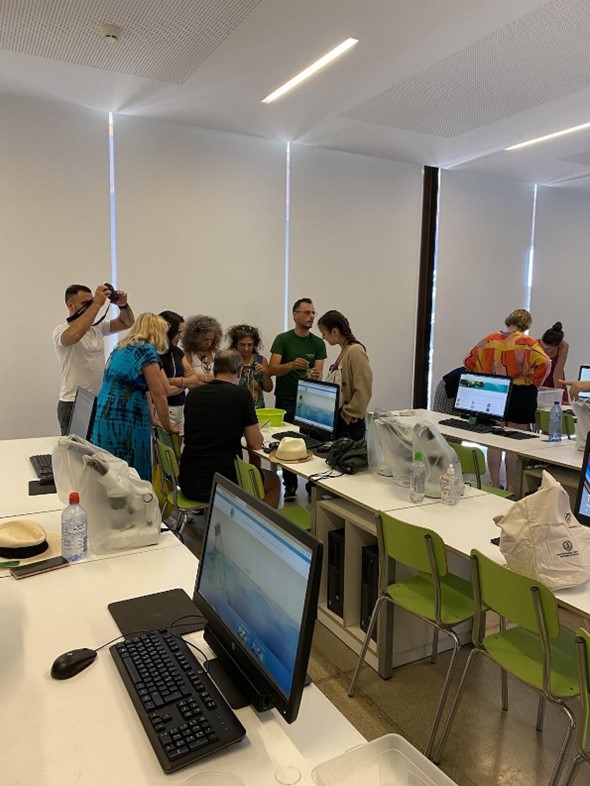
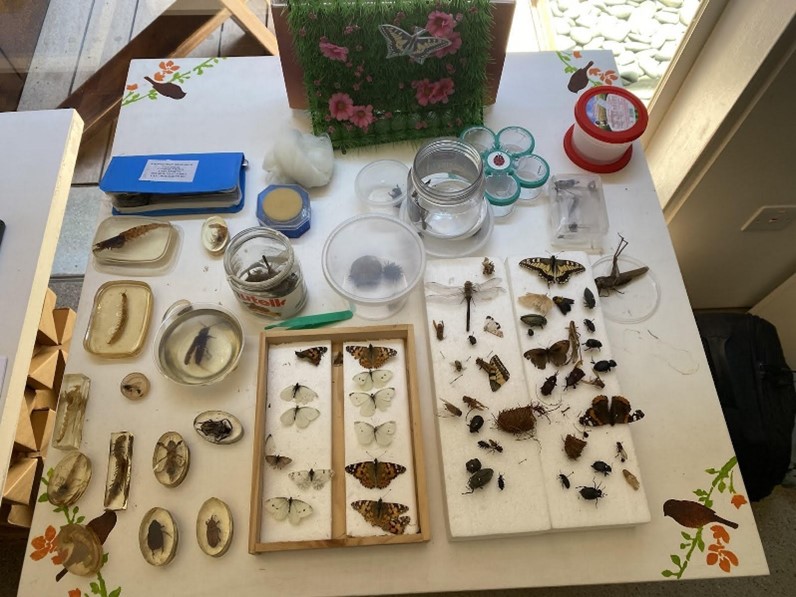
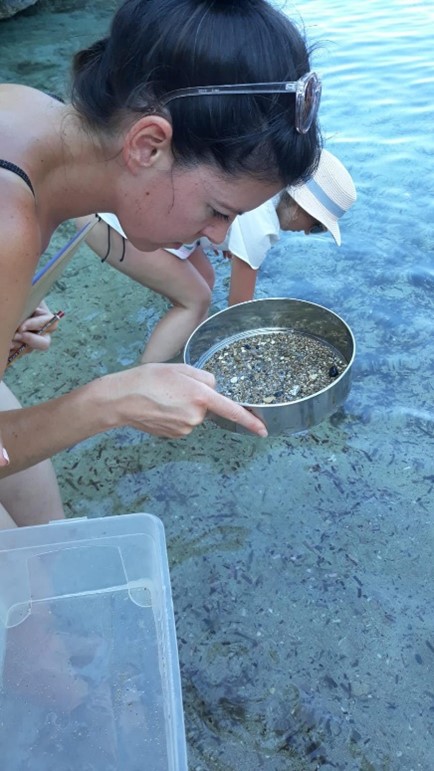
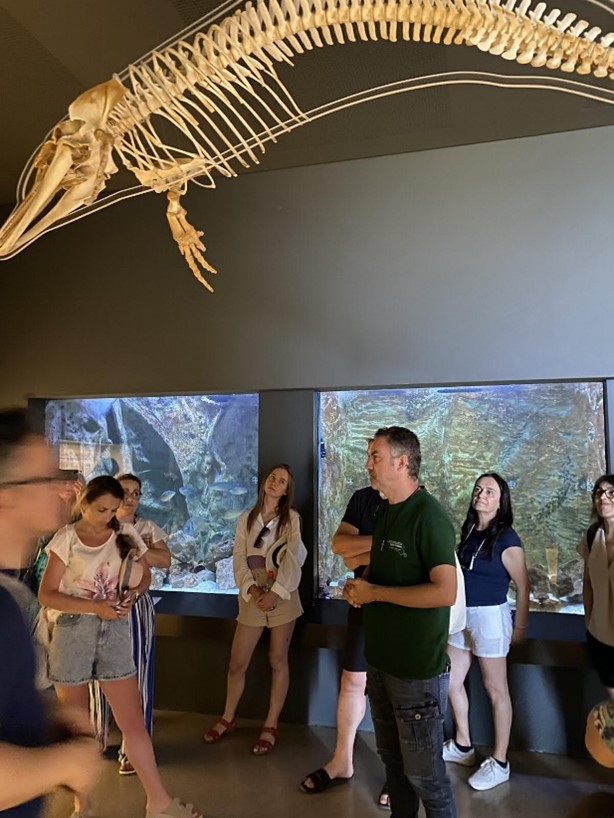
Day 4. The participants had a chance to get a bigger picture and to learn about mechanisms for education for sustainability. Dr Aravella Zachariou, Head of the Education Unit for the Environment and Sustainable Development at Cyprus Pedagogical Institute introduced the participants to the policy initiatives and key policy documents in the area. The participants reflected on what is happening in their own countries which stimulated interesting group discussions and art work as well.
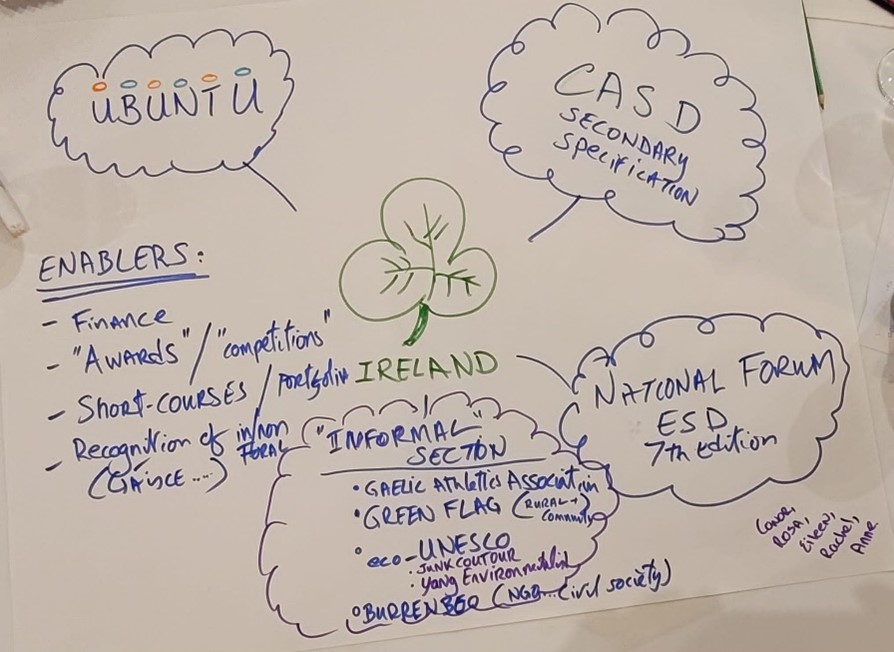
The Workshop on Green Citizenship in / for Europe was led by Friedrich-Schiller-Gymnasium, Pirna. The participants were introduced to the work done in the secondary school in Germany, its projects within whole-school approach.
Day 5. The Summer School experience finished with planting and giving leaves to the Teaching Sustainability reflective trees which brought together the emotions, ideas, lessons and experiences from the Summer School.
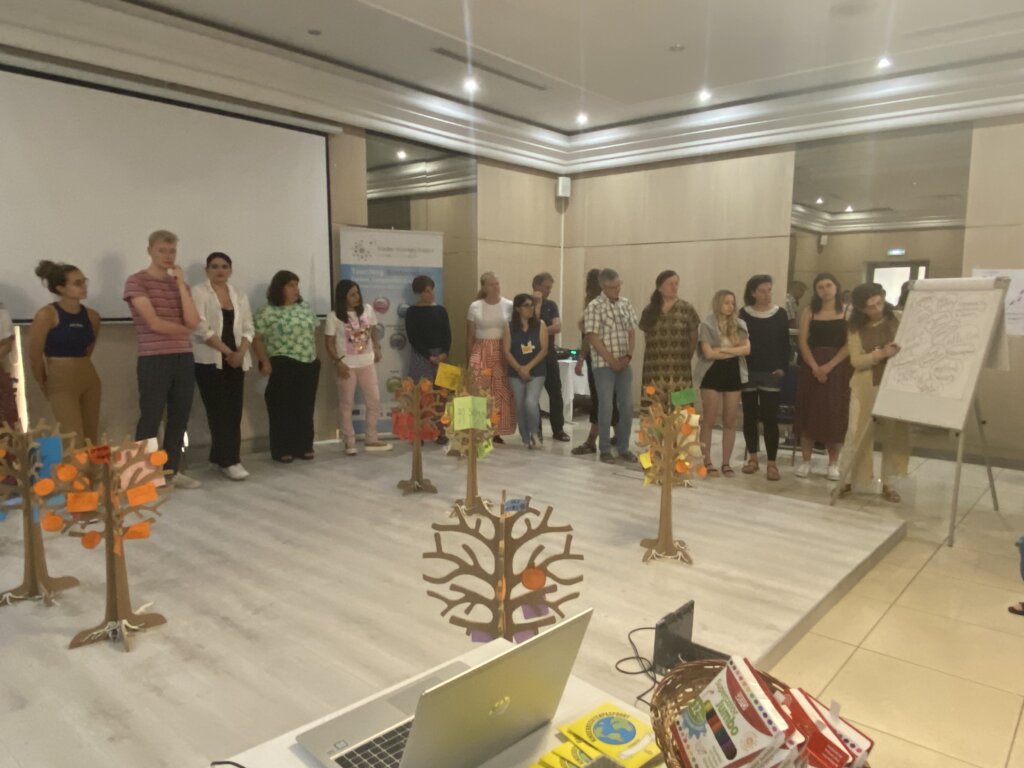
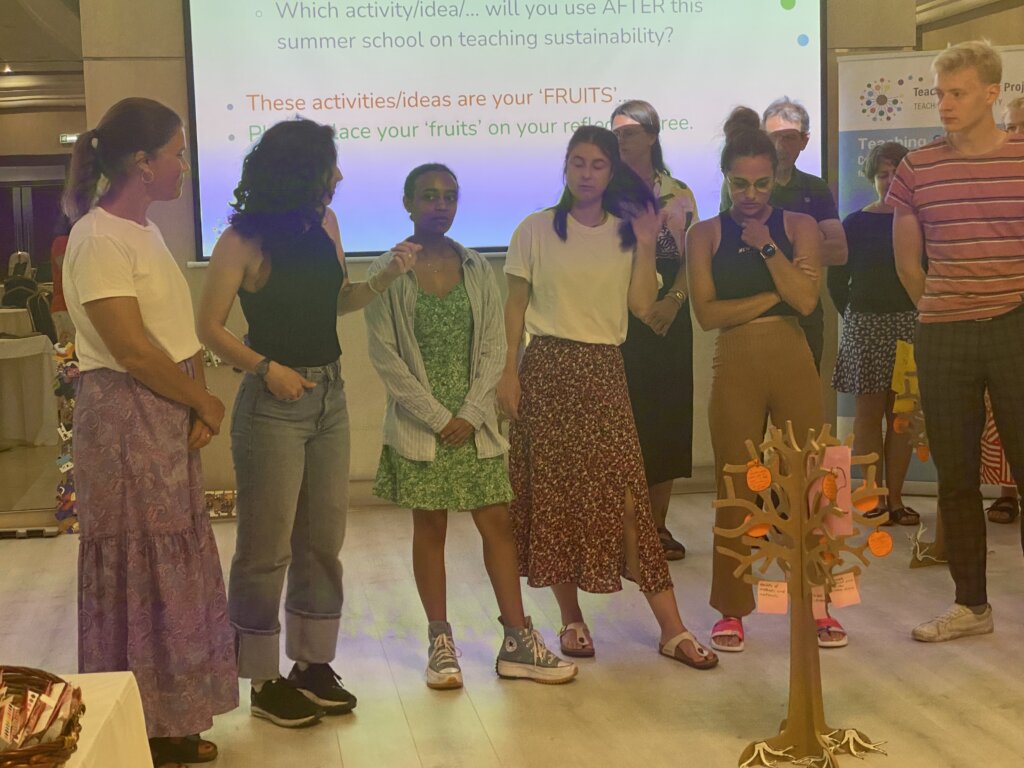
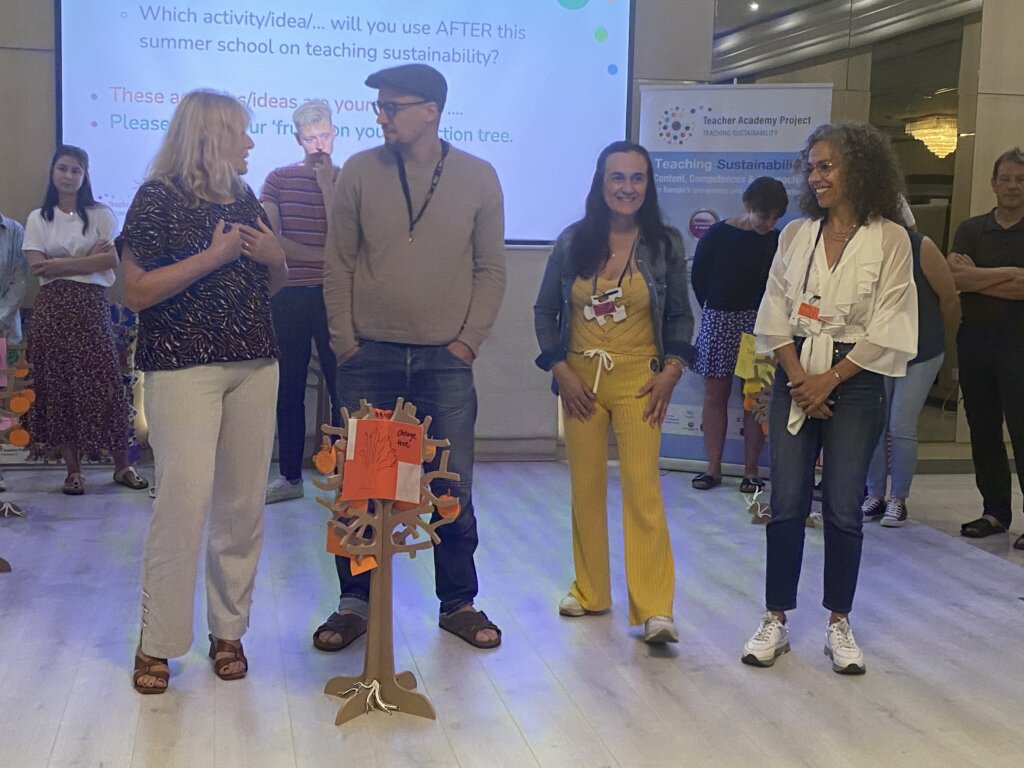
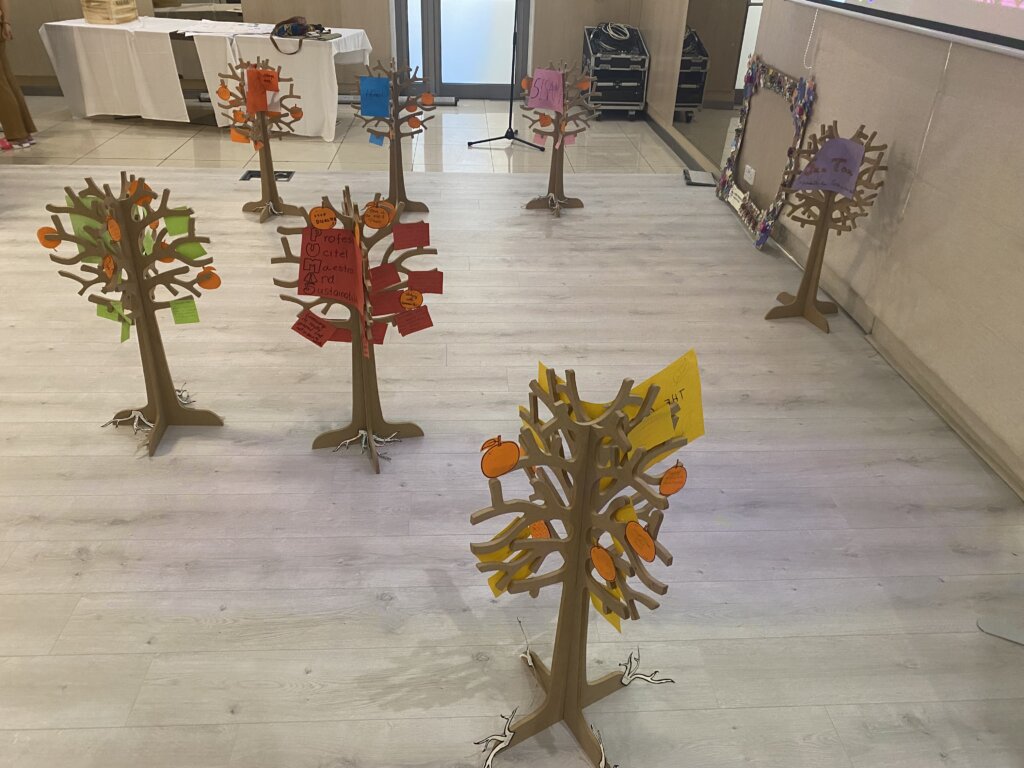
The Team of the University College of Teacher Education in Vienna expresses their gratitude to the project partner in Cyprus for the inspiring and rich experiences and hospitable hosting of the first Summer School of TAP-TS.
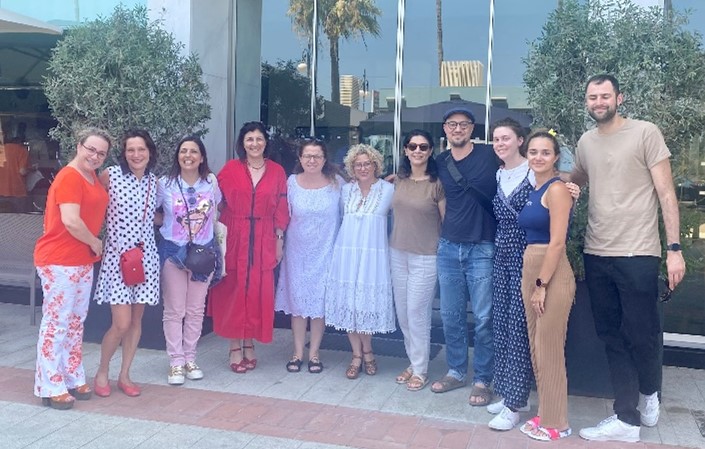

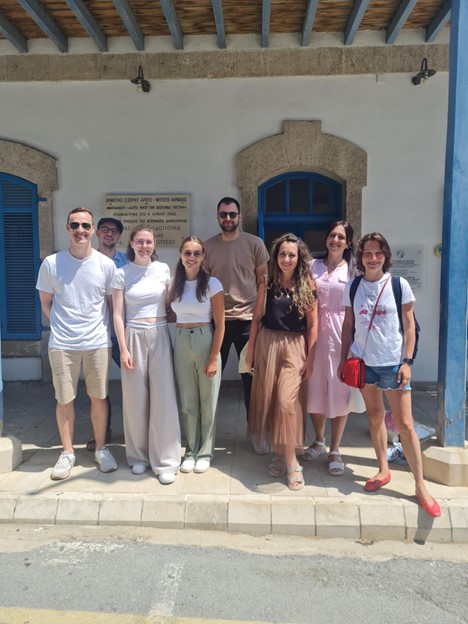
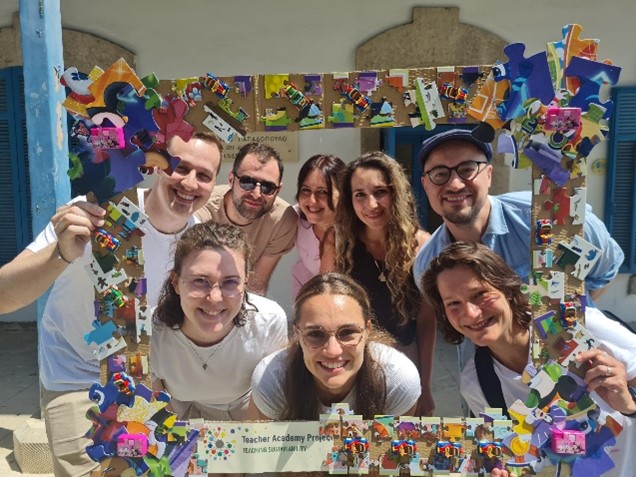
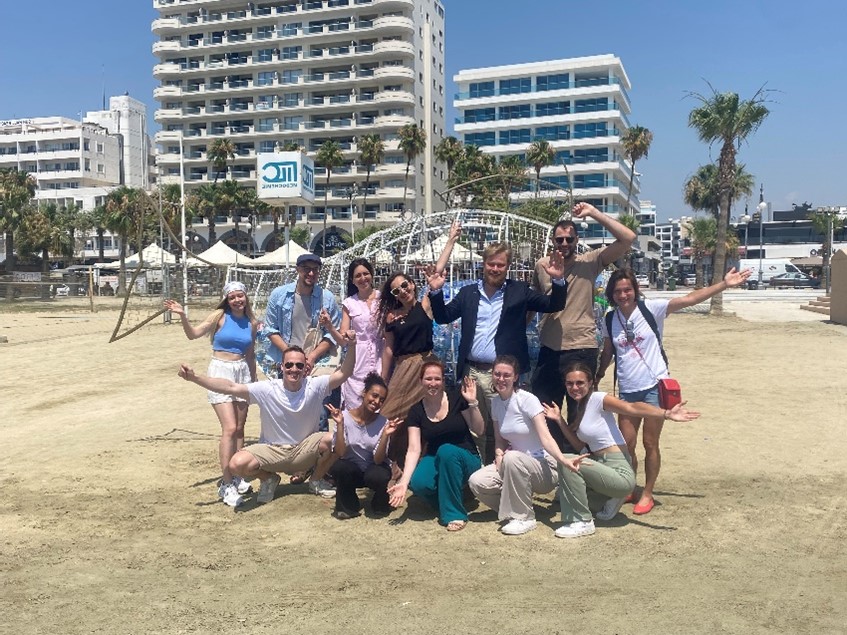
(Report: Elena Revyakina)
Information about the project:
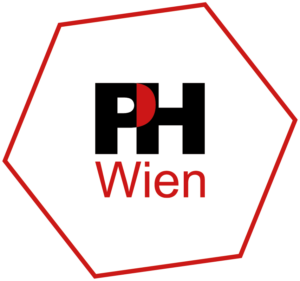
Schreibe einen Kommentar